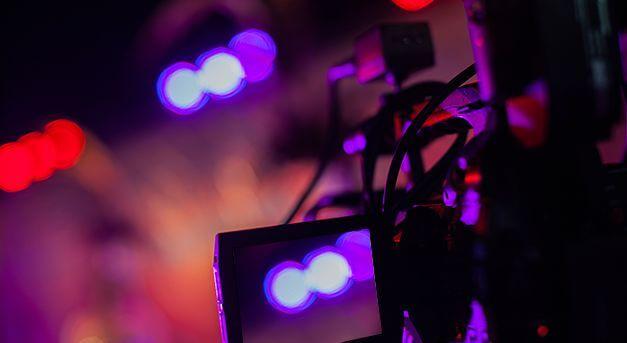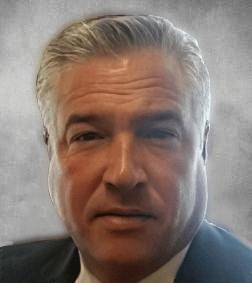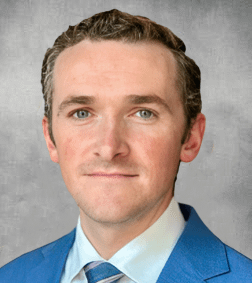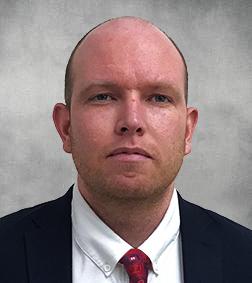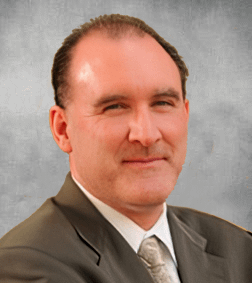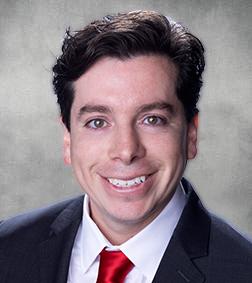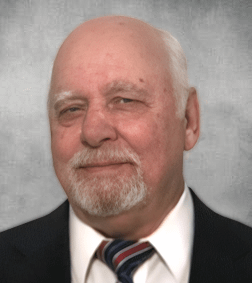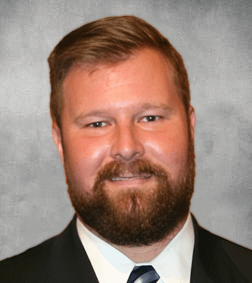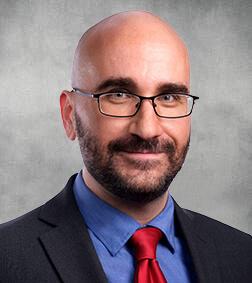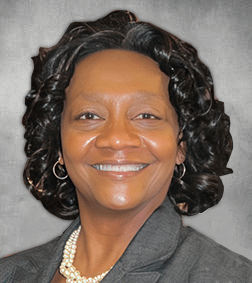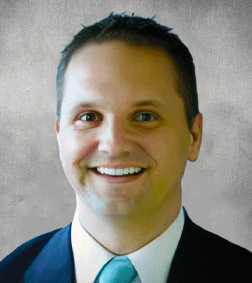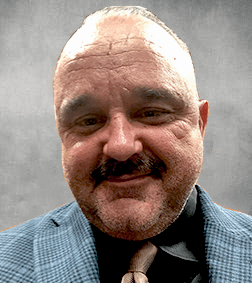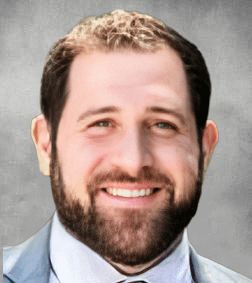Child Pornography Defense Lawyers in Florida
Defending Against Florida Child Pornography Charges
Severe punishments await the person convicted of possessing, distributing, or creating child pornography in Florida. The conviction for any one of these crimes could land an offender in prison for several decades and could also be subject to incarceration as a sexually dangerous person or a sexual predator. Crimes associated with child pornography are taken very seriously by prosecutors and law enforcement agencies in Florida because of the damage creating these images does to a child. Therefore, police, prosecutors, and federal agents look for ways to invade child pornography distribution rings to apprehend every person who possesses an image considered to be child pornography, the people who distribute images associated with child pornography, and the people who create those images.
Identifying the source of child pornography is exceedingly difficult. Therefore, law enforcement investigators pursue the end-user who has a couple of images rather than the people who create them. Chasing the end-users of child pornography relentlessly serves only two punish those who had nothing to do with creating the image. Of course, people will argue that if there were no end-user, there would be no reason to create child pornography in the first place. It is impossible to predict whether incarcerating every person who possesses child pornography will eradicate the problem. Notwithstanding, law enforcement agencies at the federal, state, county, and local levels devote millions of dollars to investigate purveyors of child pornography.
Images of child pornography repulse most people. Why wouldn't they be? Childhood is supposed to be pure and innocent, not scarred by some person's sick, prurient interest in looking at underage children in the nude or engaged in sexual conduct. These normal people are called to appear in Florida courts as juries to decide the fate of the person on trial. Despite the presumption of innocence, anyone who hears a person on trial is accused of crimes associated with child pornography will automatically assume the defendant is guilty.
Knowing where to turn for competent legal advice if you are under investigation for crimes associated with child pornography in Florida could put you in the most advantageous position possible to defend against these allegations. You must contact skilled, knowledgeable, and aggressive Florida child pornography defense lawyers immediately to have a chance to avoid exceeding with long prison sentences.
The Florida child pornography defense attorneys with Musca Law have a well-earned reputation Excellence in the courtroom. They do not shy away from difficult cases. Rather, they are guided by a firm belief and the protections guaranteed by the U.S. Constitution and the Florida State Constitution that every person is presumed innocent until proven guilty beyond a reasonable doubt. Musca Law's Florida child pornography defense lawyers embrace the constitutional protections afforded to their clients and defend their rights aggressively.
A skilled and reputable defense attorney in Florida can explain what they can do for you to level the playing field that is tilted against you even though you are presumed innocent. Contact Musca Law today at 888-484-5057 to discuss your rights, defenses, and learn how Musca Law's decades of experience defending the rights of Floridians could help you in your time of crisis.
Florida Child Pornography Allegations
The state criminal law Florida and the federal law governing crimes associated with child pornography divide criminal acts into various categories based on the severity of the crime. Investigators will use their extraordinary resources to rummage through your personal life to uncover evidence of child pornography in your possession. Moreover, law enforcement officers will seek the most severe charge for which they have probable cause to bring. The standard of probable cause is not a heavy burden to meet. The police only need to satisfy the probable cause requirement to bring charges and arrest someone or seek a warrant. The standard of proof known as beyond a reasonable doubt has no application before trial.
Once the police take out charges against an individual relating to child pornography, the investigators will turn the case over to the prosecuting authorities to prepare the case for trial. Prosecutors who have extensive training and experience prosecuting sex offenses, including child pornography offenses, understand that they have an obligation to pursue charges which they think they can prove in good faith. Ethical rules prevent prosecutors, theoretically, from taking out criminal charges for which there is little or no proof. However, a seasoned prosecutor knows that the more charges that could be levied against the accused create the scenario where it is almost impossible for the accused to defend each charge successfully.
Prosecutors can use this theory best in child pornography cases. Florida law allows the state's attorney to bring one criminal charge for every photograph a person possesses. In some jurisdictions, the prosecution could bring one charge to encompass every image seized by police in possession of the accused. But in Florida, prosecutors wield their discretion to bring an individual charge for each image as a hammer to levy the harshest punishments possible.
Aligning yourself with a defense team that has unsurpassed resources, extensive trial skills, and a reputation for delivering justice is the antidote for overzealous prosecutors who carelessly wield their authority.
Possession of Child Pornography
Child pornography is the depiction of a person under the age of eighteen while engaged in sexual activity or participating in sexual conduct. Pornography can be preserved in any form of media such as photographs, digital videos, or digital images. Possession of merely one image of child pornography is 3rd degree felony in the state of Florida. The maximum possible penalty for a third-degree felony in Florida is a five -ear state prison sentence along with a fine of no more than $5,000.00. The sentencing judge may also impose a term of probation as well. The terms of probation Will include the standard terms of probation along with clauses to protect potentially vulnerable people suggest staying away from having no contact with children under eighteen unless supervised by another adult, ordered to not use the Internet except for business purposes, and attend sex offender classes.
Furthermore, a person convicted of possessing child pornography, depending on the circumstances, might have to register as a sex offender in Florida. The prosecution has the discretion to charge one offense for each image possessed by the accused. Moreover, the judge could run each sentence consecutively, also known as from and after each other.
Federal law also prohibits possession of child pornography. The U.S. Attorney's Offices in Florida often work with the Federal Bureau of Investigation to apprehend and incarcerate possessors of child pornography. The federal authorities acquire jurisdiction over child pornography charges if they could prove the offender used the U.S. Postal Service, private shipping organizations that conduct interstate business, or the Internet to receive and possess the illicit images.
Federal law, in many circumstances, is much harsher than state law, and possession of child pornography is no exception. A judge presiding over a federal prosecution for possession of child pornography could sentence the convicted offender up to fifteen years in federal prison.
Exposing a Minor to Pornography
Pornography is lawful to possess in Florida, provided that it does not depict a child. However, a person has no unfettered discretion to show the images to whomever he or she pleases. Florida law indicates any person who displays pornography to a child younger than eighteen-years-of-age is guilty of a first-degree misdemeanor. The maximum penalty for a first-degree misdemeanor conviction in Florida is one year in jail, along with a fine not to exceed $1000.00. It is vital to note that a person convicted of this charge must register as a sex offender in Florida. Moreover, prosecutors can seek an enhanced charge for subsequent offenses. In that instance, the subsequent offender will be charged with a third-degree felony and could receive up to a five-year prison term.
Distributing Child Pornography
Distributing child pornography serious criminal offense in Florida. Additionally, the distribution of child pornography is an incredibly serious offense at the federal level as well. In Florida, the maximum possible prison sentence for distribution of child pornography is fifteen years. Under Florida State law, the distribution of child pornography is a second-degree felony. The offender also runs the risk of being assessed a $10,000.00 fine as well. The prosecution must prove that the person on trial knowingly distributed, dispensed, advertised, or produced visual imagery that depicts a minor engaging in a sexual act.
Law enforcement agents expend valuable resources attempting to identify and apprehend distributors of child pornography. However, the various technologies available today make arresting distributors of child pornography exceedingly difficult. Therefore, a person who is charged with distributing child pornography in Florida is likely to face the maximum sentence if convicted.
Manufacturing Child Pornography
Manufacturing child pornography is similar to distributing child pornography. Any person who creates any imagery that depicts a child engaged in a sexual act is guilty of manufacturing child pornography. Additionally, any person who solicits another to participate in making child pornography is also guilty.
Manufacturing child pornography in Florida is a second-degree felony. By contrast, the maximum penalty for distributing child pornography under federal law is even more draconian. Federal law prescribes a minimum mandatory five-year prison sentence for some crimes relating to child pornography. However, minimum mandatory penalties increase to fifteen years, with a maximum of thirty years, in prison for the exploitation of minors.
Sentencing Guidelines for Florida Judges
Under Florida's Criminal Procedure Code, the sentencing judge is required to analyze the impact the crime had on the victim, the level of severity of the offender's criminal activities, the prior criminal history of the accused, along with other considerations like the offender's background, education, and social history. A sentencing judge could run each committed sentence consecutively if the punishment is warranted under the circumstances. The judge could also reduce the sentence imposed on the convicted offender if there are valid reasons for a downward departure from the Florida sentencing calculations.
With a Florida child pornography defense lawyer as your advocate, you will have the best legal defenses available to you every stage of the proceedings, including sentencing. Musca Law's Florida child pornography defense lawyers could assemble a persuasive sentencing argument that could convince the judge to depart from the sentence calculations computed by the Florida Criminal Procedure Code and reduce the amount of prison time.
Additional Charges Commonly Associated with Child Pornography Charges
Indictments for rape, sexual battery over minor, statutory rape, fondling of a minor, and lewd and lascivious acts with a minor are charges linked together based on the evidence in the case. In Florida, a person under sixteen cannot consent to sexual contact because state law declares that a person of such tender years lacks the maturity to consent to sex. Even though consent is not a viable defense in some cases, a savvy and accomplished Florida child pornography defense lawyer understands how to weave the issue of consent into a defense strategy that shows the jury the complete picture of what transpired between the teenager and the accused.
Collateral Issues for Child Pornography Convictions
Collateral issues abound for individuals convicted of child pornography offenses. A person convicted of a child pornography offense will most likely have to register as a sex offender after securing release from incarceration. Also, prosecutors could seek an involuntary commitment to a treatment facility for the offender if a court declares the offender to be a sexual predator. A non-citizen should expect to be deported after serving a sentence for a child pornography offense, even if the individual is present in the country legally. Additionally, the offender should expect to wear a GPS device to monitor the offender's location at all times and will be ordered to stay away from children unless supervised. Moreover, the court could restrain the offender from living with or near children and could be prohibited from pursuing certain employment opportunities because of the potential to encounter children.
Defending Child Pornography Charges in Florida
Every person in Florida is guaranteed the right to a fair trial, even if the charge is unpopular or invokes a strong emotional response. Only hey Florida child pornography defense authority who fights vigorously for the rights of the accused will promote justice and ensure that the rights of the accused are protected, no matter how disgusting or heinous the charges might be.
Every criminal case has its nuances. In that respect, no two cases are alike. A Florida child, pornography defense lawyer, can rely on previous trial experience to fashion the best defense for the client. Substantial trial experience also allows being creative and inventive, with arguments that put the accused in the best light possible before the judge and jury.
One defense that could be successful in a particular case might not be successful in another. That is why a knowledgeable and resourceful criminal defense attorney in Florida will sort through all of the facts and investigate the circumstances thoroughly to develop a defense strategy that minimizes culpability or wins an outright acquittal.
One common defense that is highly nuanced but can be remarkably successful in the right case is arguing that the depictions of the child are erotic and not depicting sexual behavior. Under Florida law, erotica is not pornography. The difference might be one of degree; however, a persuasive argument might prevent the jury from believing the prosecution has proved each and every element of the crime beyond a reasonable doubt. If the jury harbors any reasonable doubt that the image is erotica rather than child pornography, then the accused must be acquitted.
Another viable defense relates to the intent to possess child pornography. Child pornography can Wind its way onto a person's computer without the knowledge of the computer user. Child pornography could be attached to certain computer files that will open after download and be saved in the computer directory. A person who opens the file not expecting to see child pornography has the defense known as unwitting possession. In that circumstance, the individual must attempt to delete the image permanently as soon as possible as corroboration of an innocent mind.
The defense team might be able to identify actors portraying children in pornographic photos or videos. The defense could subpoena the actors to court to testify about the individual's true age at the time the depiction was made. This defense is more likely to be available to people charged with manufacturing child pornography than someone who is simply possessing it.
Search, and seizure issues frequently arise in child pornography defense cases. The police must abide by the constitutional restrictions imposed on them no matter what crimes they are investigating. Therefore, a person charged with possessory crimes such as possession of child pornography can argue that the police unlawfully searched and seized the evidence. If the police violated the constitutional rights of the accused, then all evidence seized pursuant to the unlawful search must be suppressed.
Additionally, investigators frequently interview suspects after an arrest. The investigative must advise the suspect of the Miranda warnings before starting questioning. Failing to give the Miranda warnings accurately or completely could result in a judge finding that the waiver of Miranda was involuntary and, therefore, unconstitutional. As a result, the judge could suppress the use of the accused statement at trial and could weaken the government's case.
Entrapment is also a viable defense to the charge of possession of child pornography in Florida. Entrapment cases are rare. To prove entrapment, the accused must show that the police used unfair tactics to convince the accused to violate the law after overcoming the will of the accused. The defendant has the burden to produce evidence of entrapment. The government, that is, the prosecution must prove beyond a reasonable doubt that the police did not overbear the will of the accused to defeat a claim of entrapment.
Aggressive Florida Defense Attorneys
Musca Law's Florida child pornography defense attorneys understand the pressure a person faces when on trial. It is a stressful and difficult time. However, when you secure the representation of a Florida child pornography defense attorney from Musca Law, you will have decades of criminal defense experience supporting and protecting you. Contact our law firm today at 1-888-484-5057 to discuss how we could help you maintain your liberty.

